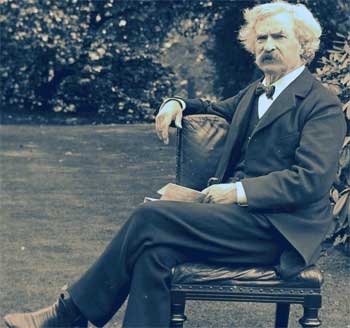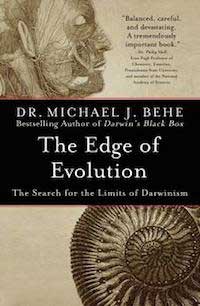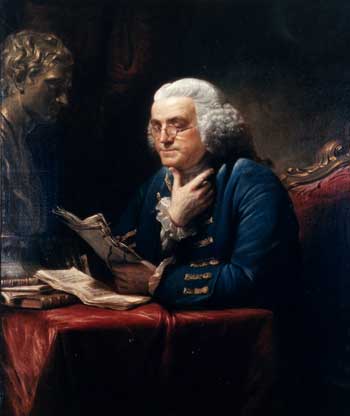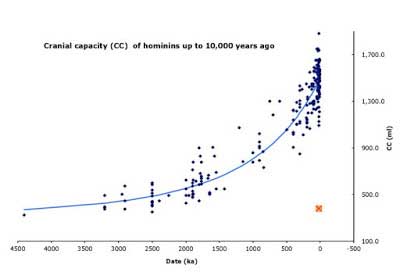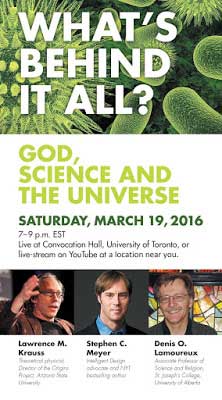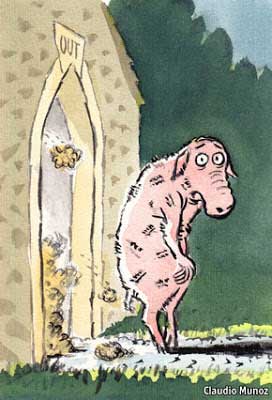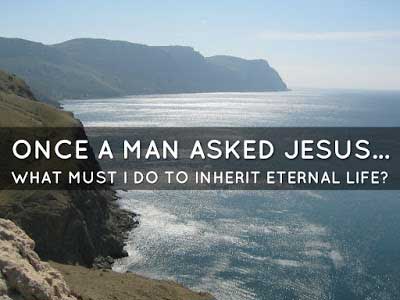Myth-Buster, Word-Smith, Believer in Tolerance, Forgiveness and Opening Heavenʼs Gates Wider (but also in the reality and dangers of Witchcraft), Discoverer of Chinks in the Armor of Biblical Infallibility, An Ecclesiastes-Like Preacher of the Vanity of Life with a Few Resemblances to Lucretius the Atheist.
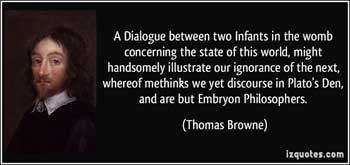
Platoʼs den or cave refers to a famous allegory about people chained to the wall of a cave all of their lives, facing a blank wall. The people watch shadows projected on the wall from things passing in front of a fire behind them, and they begin to give names to these shadows. The shadows are as close as the prisoners get to viewing reality.
Embryon is roughly equivalent to our modern word, embryonic, so Browne is noting how little knowledge we have of the afterlife.
Quotations
We are ignorant of the backparts, or lower side of his Divinity.
My contact with Truth has been so fleeting and my comprehension of its mystery is so incomplete that to rush forth to its defense thus ill-prepared would be a great disservice.
Browne saw too many men who thought they had seized all of truth and who, as a result, not only missed the rightful enjoyment of a partial truth but mistook that part for the whole.
Those have not only depraved understandings, but diseased affections, which cannot enjoy a singularity without an Heresy, or be the Author of an Opinion without they be of a Sect also.
Opinions, even odd opinions, Browne does not condemn, so long as they are recognized for what they are. He recommends that they be held lightly.
The best we can do in view of the gulf fixed between our partial wisdom and the wholeness of the last Day, is to exercise manfully our reason, preserve the honesty of our enquiry, and so fulfill our human obligation even though at last we miss of truth.
We learn today what our better advanced judgments will unteach us tomorrow; and Aristotle does but instruct us, as Plato did him; that is, to confute himself. I have run through all sorts [of philosophies], yet find no rest in any: though our first studies and junior endeavors may style us Peripatetics, Stoics, or Academics [different types of philosophers]; yet I perceive the wisest heads prove, at last, almost all Skeptics, and stand like Janus in the field of knowledge. [Janus the god had two faces that peered in opposite directions at the same time.]
I have one common and authentic Philosophy I learned in Schools, whereby I discourse and satisfy the reason of other men; another more reserved, and drawn from experience, whereby I content my own.
I love to satisfy myself in a mystery, to pursue my reason to an o altitudo [feeling of spiritual exaltation, a Latin phrase that comes from Romans 11:33].
Where I cannot satisfy my reason, I love to humor my fancy.
We carry with us the wonders we seek without us.
Our ends are as obscure as our beginnings.
As reason is a rebel to faith, so passion is a rebel to reason.
Some Christians in Browneʼs day “declaimed against all Church music,” because they felt true worship should be accompanied only by sanctimonious spoken rites or silence. As for Browne:
I do embrace Church music; for even that vulgar Tavern music which makes one merry, another mad, strikes in me a deep fit of devotion, and a profound contemplation of the first Composer [God]. There is something in it of Divinity more than the ear discovers; it is an hieroglyphical [Egyptian hieroglyphs were impossible to read in his day] and shadowed lesson of the whole World, and creatures of God.
Sir Thomas Browne, Myth-Buster
Browneʼs most popular work in his lifetime is the one that is now most neglected, Pseudodoxia Epidemica, a catalogue of “vulgar errors,” urban myths of the seventeenth century. Many of these concerned silly things that people believed about animals. Browne was an astute observer of natural history (the author of a Natural History of Norfolk), and well positioned to correct such errors—the Snopes.com of his day.
Browneʼs European education exposed him to some of the latest thinking in medical practice, including training in anatomy and dissection — practices that were beginning to challenge and criticize the traditional authoritative works in medicine, such as those by Hippocrates and Galen. This included William Harveyʼs discovery of the circulation of the blood, which Browne said was a “discovery I prefer to that of Columbus.” He also kept a menagerie of exotic animals in his home, and he traced the ubiquity of the geometric pattern known as the quincunx through plants, insects and crystals. But his research might be described more accurately as nature poetry than as science, and his greatest delight seemed to be in things that defied categorization.
Is it unlucky to sneeze between midnight and noon? How to account for the “strange and mystical metamorphosis of silkworms;” or, the bizarre phenomenon of children being born with hair all over their bodies? Did Jesus laugh? Did he lie down to eat? What are the diseases associated with the climate of Iceland? What was the likely outcome if you imprison a mole, a toad and a viper together, under glass? (As it happens, the mole prevails.) Do snails have eyes? Early editions of Pseudodoxia Epidemica discuss his dissection of the horns of snails and Browne says that “I am not satisfied that these are eyes,” but by the last edition of 1672 he says he now believes, thanks to “the help of exquisite [magnifying] Glasses,” that “those black… spots or globules [are] their eyes.”
He could also pass comfortably from such questions to reflections on magnetism, coral, crystallography, ballistics, porcelain and the human eyelid. He was also obsessed with the medicinal properties and allegorical associations of plants; and had a pioneering determination to test hypotheses by the experimental method, which led him to study the effects of substances like vinegar and saltpeter on frog eggs—the earliest experiments in chemical embryology. He could also write with great verve about why most cultures buried their dead lying down, but some had the bodies standing erect; about the macabre practice of inhaling a dying personʼs last breath; and about the even more disturbing one of drinking a loved oneʼs ashes (a custom revived and adapted by Keith Richards of the Rolling Stones, who claimed to have snorted some of his fatherʼs remains.)
In arguing that the unicorn of myth doesnʼt really exist, Browne gleefully transformed the horned white horse into the lowly beetle with gentle irony:
Beside the several places of Scripture mentioning this Animal (which some may well contend to be only meant of the Rhinoceros) we are so far from denying there is any Unicorn at all, that we affirm there are many kinds thereof. We will concede no less then five; that is, the Indian Ox, the Indian Ass, the Rhinoceros, the Oryx, and that which is more eminently termed Monoceros, or Unicornis. Some in the list of fishes; as that described by Olaus, Albertus and others: and some Unicorns we will allow even among Insects; as those four kinds of nasicornous Beetles described by Muffetus.
Browne also dismantled the idea that elephants canʼt lie down or donʼt have joints: “Herein methinks men much forget themselves, not well considering the absurdity of such assertions.” On the other hand, he did not find it impossible that elephants could write and talk! “That some Elephants have not only written whole sentences… but have also spoken… we do not conceive impossible.” Browne cites “Ælian” who says he saw an elephantʼs trainer use the elephantʼs trunk to write Latin letters; presumably Greek is too refined for elephants; while Pliny VIII.6 (English by Holland, VIII.33) says that an elephant has written an entire sentence, which sentence Pliny quotes. Browne also cites “Oppianus and à Costa” who told the story of an elephant who went “Hoo, hoo.” Browne even alludes to the tale of Achillesʼs horse delivering a speech in Homer. See The Iliad xix 404ff “[Achillesʼs horse] bowed his head till his mane touched the ground and said, ‘Dread Achilles, we will indeed save you now, but the day of your death is near, and the blame will not be ours, for it will be heaven and stern fate that will destroy you… it is your doom to fall by the hand of a man and of a god.’“
In regard to the possibility of elephants speaking Browne also alluded briefly to “the Serpent that spoke to Eve,” and, “Dogs and Cats that usually speak to Witches.”
Speaking of having a soft spot for serpents, Browne defended the possible existence of the basilisk—a hybrid of a serpent and a cockerel:
17th-century depiction of a basilisk with a weasel, by Wenceslas Hollar.
Another weird creature whose existence Browne defended was the satyr—men with equine ears and tails. “Their shadowed moralities requite their substantial falsities.” In other words, their role in the myths in which they appear made them too valuable to let go.
Still, aside from his misses, he had a lot of hits. For instance he was able to show that almonds did not prevent drunkenness, and via observations he showed that earwigs have wings, and that flies donʼt hum with their mouths. The claim that bear cubs are born as formless lumps and then literally “licked into shape” by their mothers was solemnly disproved. So too was the idea that the root of the mandrake plant screams when it is pulled from the ground.
Browne was driven more by intellectual pleasures than physical ones, for he wrote at the age of 30, while still a bachelor, that he wished “we might procreate like trees, without [physical] conjunction, or that there was a way to perpetuate the world without the trivial and vulgar act of coitus; It is the most foolish act a wise man commits in his life” (which reminds one of Erasmusʼs saying, “The type of person who devotes himself to the pursuit of wisdom is most unlucky in everything, but above all in begetting children—as if Nature had taken pains, I suspect, to keep the disease of wisdom from spreading too widely among mortals”).
Nor did Browneʼs lively mind seem content with the idea of sleep stealing a large proportion of life: “Half our days we pass in the shadow of the earth, and the brother of death exacteth a third part of our lives.”
As for seeking to obtain a front row seat in heaven by dying a blessed martyr, Browne did not appear eager, not with his lively mind and tolerant personality: “It is a brave act to despise death; but where life is more terrible than death, it is then the truest valor to dare to live.”
Sir Thomas Browne, Word-Smith
Browne invented words when no others seemed to do the trick such as “medical,” “suicide,” “exhaustion,” “hallucination,” “coma,” and “prairie”. Observing the arrival of exhausted seabirds on the Norfolk coast, Browne was among the first to conclude that annual migration over huge distances must be part of their life cycle (he coined the word “migrant” and even gave several species their now familiar English names). The Oxford English Dictionary concludes that he gave the language 784 new words, and cites him as the first exemplary source for another 1,616. On the other hand, unless you use words like “eleemosynary” in casual conversation, a dictionary might help while reading Browne, not to mention the fact that you have to hack through dense forests of allusion, sentence by tangled sentence. “His prose is decidedly not Hemingway—it can be a workout,” says Stephen Greenblatt of Harvard. “But Browne is like this kind of wonderful half-open secret that runs through modernism.”
Sir Thomas Browne on Witchcraft
Browneʼs belief in witches was linked to his belief in the Devil, which in turn was linked to his belief in God. Browne, called by the prosecution as “a Person of great knowledge” in a 1662 witch trial, rendered his opinion that the two accused women, Amy Duny and Rose Cullender, had indeed enlisted the Devilʼs aid to afflict the village children, causing them to swoon, vomit up pins and so forth. Before Lord Chief Justice Hale at St Edmundsbury in 1664 Dr. Browne “was clearly of the opinion that the persons were bewitched; and said that in Denmark there had been lately a great discovery of witches, who used the very same way of afflicting persons by conveying pins into them, and crooked as these pins were, with needles and nails. And his opinion was that the Devil in such cases did work up on the bodies of men and women upon a natural foundation… for he conceived that these swooning fits were natural… but heightened to a great excess by the subtlety of the Devil, co-operating with the malice of these that we term witches, at whose instance he doth these villanies.”
[“A Psychological Parallel,” Matthew Arnold, The Contemporary Review, v.28, Nov. 1876]
Browne added: “I believe that all that use sorcery, incantations and spells are not Witches; I conceive there is a traditional Magic, not learned immediately from the Devil, but at second hand from his Scholars;… Thus I think a great part of Philosophy was at first Witchcraft, which, having afterwards derived to one another, proved but Philosophy, but was indeed no more than the honest affects of Nature; what, invented by us, is Philosophy, learned from him Magic.”
Granted, Browne, lived at the beginning of the Enlightenment in an age when the leading chemist, Boyle, was also an alchemist. But Browne looks particularly bad by contrast with another figure at the same witch trial, albeit one whose name is lost to history. This figure—referred to only as an ‘ingenious person’ in the trial record—objected that the allegedly bewitched children might be counterfeiting their symptoms. The objection led the court to perform a sort of proto-scientific experiment, the outcome of which strongly pointed to the innocence of the defendants. Yet owing to the superstitious atmosphere of the trial—an atmosphere that Browne had done his bit to establish—the two women were sent to the gallows anyway.
Sir Thomas Browne on Forgiveness, Tolerance and Opening Heavenʼs Gates Wider
Browne remained a devoted Church of England Protestant in an epoch fraught with religious controversy and hatred (Catholic versus Protestant and vice versa, Protestant versus Protestant, not to mention the Copernican controversy and witchcraft trials). He was a man of his time in some ways but ahead of the curve in others like his pleas for tolerance, humility, good works over faith. In his work, Religio Medici (roughly, A Doctorʼs Faith), Browne attempted to reconcile the religious views of his day (which were still quite conservative compared with todayʼs religious moderates and progressives) with reason. It was published in 1643, just as England was descending into a civil war conducted along Catholic-Protestant fault lines.
Forcible ways make not an end of evil, but leave hatred and malice behind them.
Persecution is a bad and indirect way to plant Religion. [Though he did not feel that way when it came to the persecution of witches and perhaps atheists as well.]
For Browne the great “virtue was charity, without which Faith is a mere notion;” his doctrine was simple:
He that giveth to the poor, lendeth to the Lord: There is more Rhetoric in that one sentence than in a Library of Sermons.
To forgive our enemies is a charming way of revenge, and a short Cæsarean conquest, overcoming without a blow; laying our enemies at our feet, under sorrow, shame, and repentance; leaving our foes our friends, and solicitously inclined to grateful retaliations. Thus to return upon our adversaries is a healing way of revenge; and to do good for evil a soft and melting ultion, a method taught from heaven to keep all smooth on earth. Common forcible ways make not an end of evil, but leave hatred and malice behind them. [Christian Morals, Pt.III, xii]…
I could never divide myself from any man upon the difference of an opinion, or be angry with his judgment for not agreeing with me in that, from which perhaps in a few days I should dissent myself: I have no genius to disputes in religion, and have often thought it wisdom to decline them… In philosophy, where Truth seems double-faced, there is no man more Paradoxical than myself; but in Divinity I love to keep the [orthodox Christian Anglican] Road… As for those wingy Mysteries in Divinity, and airy subtleties in Religion, which have unhinged the brains of better heads, they never stretched the Pia Mater of mine…
I cannot fall out, or condemn a man for an error, or conceive why a difference in opinion should divide an affection: for controversies, disputes, and argumentations, both in philosophy and in divinity, if they meet with discreet and peaceable natures, do not infringe the laws of charity. In all disputes, so much as there is of passion so much there is of nothing to the purpose; for then reason, like a bad hound, spends upon a false scent, and forsakes the question first started. And this is one reason why controversies are never determined: for though they be amply proposed they are scarce at all handled, they do so swell with unnecessary digressions: and the parenthesis on the party is often as large as the main discourse upon the subject…
I can dispense with my hat at the sight of a cross, but scarce with the thought or memory of my Savior… I cannot hear the Ave Maria bell [of the Catholics] without an elevation…
Sectarianism was not the only irrational division repugnant to him; he was as far from racial as from religious bigotry:
I feel not in myself those common antipathies That I can discover in others, those national repugnant-cies do not touch me, nor do I behold with prejudice the French, Italian, Spaniard, or Dutch; but when I find their actions in balance with my countrymenʼs I know, love, and embrace them in the same degree.
Browne was tolerant in ways that seem a century or two ahead of his time: He emphatically refuted claims that that the left-handed are wicked and Jews are cursed, and he hoped heavenʼs gates would be opened wider. On the other hand, he maintained orthodox Anglican Christian beliefs about the Devil, witches, Adam and Eveʼs special creation, a talking serpent, etc. The fallibility of human knowledge was, for him, a strong reason to cling to the faith of his fathers. This kind of skeptically based faith, known as fideism, was shared by Montaigne (in a perhaps more ironic vein), and also by John Updike (ditto).
For my Religion, though there be several circumstances that might persuade the world I have none at all, as the general scandal of my profession [the religious views of well educated people in his day were viewed with greater suspicion, living as he did at the beginning of the Enlightenment when increasing numbers of discomforting questions were being raised by scholars], the natural course of my studies, the indifferency of my behaviour, and discourse in matters of Religion, neither violently defending one, nor with that common ardor and contention opposing another; despite which I… assume the honorable style of a Christian…
Browne appreciates, though rejects, some of the customs of the Catholic religion, and he advocates tolerance. In parts of his writing he implies that he would like to subscribe to the heresy that all souls are at last saved and hence, prefers not to judge Turks and Jews who are called heretics. He accepts church doctrine as the practical course and does not wish to promote fragmentation within the church. He also judged his own soul more harshly than that of others:
The heart of man is the place the devils dwell in; I feel sometimes a hell within myself; Lucifer keeps his court in my breast; Legion is revived in me. There are as many hells as Anaxagoras conceived worlds. There was more than one hell in Magdalene, when there were seven devils; for every devil is an hell unto himself, he holds enough of torture in his own ubi; and needs not the misery of circumference to afflict him: and thus, a distracted conscience here is a shadow or introduction unto hell hereafter. Who can but pity the merciful intention of those hands that do destroy themselves?
No man can justly censure of condemn another, because indeed no man truly knows another. This I perceive in my self; for I am in the dark to all the world, and my nearest friends behold me but in a cloud. Those that know me but superficially, think less of me than I do of my self; those of my near acquaintance think more; God, who truly knows me, knows that I am nothing… Further no man can judge another because no man knows himself; for we censure others but as they disagree from that honour which we fancy laudable in ourselves, and commend others but for that wherein they seem to quadrate and consent with us.
I find there are many pieces in this one fabric of man… a… World of Contraries… Let me be nothing, if within the compass of myself I do not find the battle of… Passion against Reason, Reason against Faith, Faith against the Devil, and my Conscience against all.
Religio Medici is molded on Browneʼs religious temper not the specific doctrines of his creed. At the end of the book Browne displays conviction without dogmatism. He could envision missing the truth yet still be justified by trusting his life to the God who knows, as he can never hope to know on this earth:
Bless me in this life, with but peace of my Conscience, command of my affections, the love of Thy self and of my dearest friends, and I shall be happy enough to pity Caesar. These are, O Lord, the humble desires of my most reasonable ambition, and all I dare call happiness on earth; wherein I set no rule or limit to thy Hand or Providence. Dispose of me according to the wisdom of They pleasure: Thy will be done, though in my own undoing.
I thank God, and with joy I mention it, I was never afraid of Hell, nor never grew pale at the description of that place; I have so fixed my contemplation on Heaven, that I have almost forgot the Idea of Hell, and am afraid rather to lose the joys of the one than endure the misery of the other; to be deprived of them is a perfect hell, & needs me thinks no addition to complete our afflictions; that terrible term hath never detained me from sin, nor do I owe any good action to the name thereof: I fear God, yet am not afraid of him, his mercies make me ashamed of my sins, before his judgments afraid thereof: these are the forced and secondary method of his wisdom, which he uses but as the last remedy, and upon provocation, a course rather to deter the wicked, than incite the virtuous to his worship. I can hardly think there was ever any scared into Heaven, they go the fairest way to Heaven that would serve God without a Hell, other Mercenaries that crouch unto him in fear of Hell, though they term themselves the servants, are indeed but the slaves of the Almighty…
Some say there is no salvation to those that believe not in Christ… which makes me much apprehend the end of those honest Worthies and Philosophers who died before his Incarnation. It is hard to place those souls in Hell whose worthy lives do teach us virtue on earth…
Itʼs true we all hold there is a number of Elect and many to be saved, yet add up all of the opinions [of different Christians] together [as to who shall be saved and who not], and from the confusion thereof there will be no such thing as salvation, nor shall any one be saved; because first the Church of Rome condemns us; and we [the Church of England] likewise condemns them [the Church of Rome]; the Sub-Reformists and Sectarian Protestants [like the Anabaptists, Separatists, Brownists] sentence the Doctrine of our church as damnable; the Atomist, or Familist believe they alone know the saving truth and denounce other churches and their beliefs. Thus while the mercies of God promise us heaven, our conceits and opinions exclude us from that place. There must be therefore more than one Saint Peter [minding the pearly gates], since particular Churches and Sects usurp the gates of heaven [i.e., claim they alone can guarantee entrance], and turn the key against each other, and thus we go to heaven against each othersʼ wills, conceits and opinions, and with as much lack of charity as ignorance, err I fear in points, not only of our own, but on anotherʼs salvation…
NOTE: Atomist, or Familist might be referring to the same sect; or, the first might be referring to Mrs. Atomy or Attaway who was notorious for preaching universalism in Britain in 1644, and the second might be referring to a sect known as the “Family of Love” that started in the Netherlands before it spread to Britain—they believed that true religion consisted of love and charity independently of the form of faith, and that spiritual perfection could be obtained; they also interpreted the Bible not as a book from which to derive doctrines that must be believed but as an allegory of love.
I believe many are saved who to man seem reprobated [i.e., cast off by God, excluded from salvation], and many are reprobated, who in the opinion and sentence of man, stand elected [to gain eternal life]; there will appear at the last day, strange, and unexpected examples, both of his justice and his mercy, and therefore to define either is folly in man…
Now for that other Virtue of Charity, without which Faith is a mere notion, and of no existence, I have ever endeavored to nourish the merciful disposition, and humane inclination I borrowed from my Parents, and regulate it to the written and prescribed Laws of Charity… for I am of a constitution so general, that it consorts, and sympathizes with all things; I have no antipathy, or rather Idiosyncrasy, in diet, humor, air, anything; I wonder not at the French, for their dishes of frogs, snails, and toadstools, nor at the Jews for eating Locusts and Grasshoppers, but when I am among them, I eat what they eat; and I find such meals agree with my stomach as well as theirs; I could digest a Salad gathered in a Churchyard as well as in a Garden. I am not angrily revolted at the presence of a Serpent, Scorpion, Lizard, or Salamander; nor at the sight of a Toad, or Viper, I find in me no desire to take up a stone to destroy them. I feel not in my self those common antipathies that I can discover in others: Those national repugnant-cies do not touch me, nor do I behold with prejudice the French, Italian, Spaniard, or Dutch; but where I find their actions in balance with my Countrymenʼs, I honor, love, and embrace them in the same degree…
Salvation, which though it be not in our power to bestow, it is in our charity, and pious invocations to desire, if not procure, and further. I cannot contentedly frame a Prayer for my self in particular, without a catalog for my friends, nor request a happiness wherein my sociable disposition doth not desire the fellowship of my neighbor. I never hear the Toll of a passing Bell [which they rang when people died], though in my mirth, without my prayers and best wishes for the departing spirit; I cannot go to cure the body of my Patient, but I forget my profession, and call unto God for his soul; I cannot see one say his Prayers, but in stead of imitating him, I fall into a supplication for him, who perhaps is no more to me than a common nature: and if God hath vouchsafed an ear to my supplications, there are surely many happy that never saw me, and enjoy the blessing of mine unknown devotions. To pray for enemies, that is, for their salvation, is no harsh precept, but the practice of our daily and ordinary devotions…
Sir Thomas Browne & Chinks in the Armor of Biblical Infallibility
Browne does not suggest we ignore the writings of authority figures, but rather that we should combine their knowledge with two other ways of finding things out: reason and experiment.
For instance, on the conservative side, Browne concluded that paintings of Adam and Eve were faulty if they depicted the first human couple with navels—because the Bible declared that neither of them came out of a womb, hence neither Adam nor Eve would have had an umbilical cord or a navel.
But on the more moderate/liberal side Browne denied that salamanders live in fire (an urban legend that Augustine had had appealed to in order to defend the idea that the bodies of the damned would not simply go up in smoke in the fires of hell but remain painfully intact forever).
His knowledge of nature also raised questions concerning the story of Noahʼs ark—because there was no mention in the Bible of species of animals from the Americas, animals that had never been seen before nor mentioned in the Bible. The existence of so many new species were just beginning to come to the attention of European scholars. Surely if the native Americans had from Noahʼs descendants in the Old World they would have taken with them horses, yet the Europeans who traveled to the Americas found no horses there. “How could there be so many creatures in the Americas that are not found in Europe-Africa-Asia; which seems odd if one believes there was but one Ark and the creatures in it all began their progress together from the mountains of Ararat.” (This question would grow even more problematical after the discovery of Australia and its unique animals. Did several arks, each containing unique species of animals, land in different parts of the world after Noahʼs Flood?)
Browne was poised between two worlds, the old one of authority and the new one of inquiry, as a scientist he was tempted to find naturalistic explanations for miracles, as a Christian he conquered this temptation ‘on his knees’. He could not, however, curb a persistent tendency to notice inconsistencies and improbabilities in the minutiae of the Bible. He could at times reconcile both reason and revelation: on the relationship of diametric to circumference [2 Chron 4:2] one should “adhere into Archimedes who speaks exactly rather than the Sacred text that speaks largely [in more general less exact terms].” He might protest that he did not question the metamorphosis of Lotʼs wife into a pillar of salt, “although some conceive that expression metaphorical.” He would not deny that Absalom hung by his hair rather than by his neck “though if he had a helmet on I could not conceive it.” He did not doubt that Judas hanged himself “though there is much evidence against it.” He might declare that the Bible is “a most singular book” and aver that its seeming inconsistencies merely reflect human limitation. Whatever his protestations, the chink in the armor of Scriptural infallibility was revealed, and his questioning intellect aroused. Conscious as he was of human fallibility, he always kept his skepticism circumspect. He teased the sacred texts rather than criticized them. Just as he rejoiced in the natural world so there is no doubting his appetite for and enjoyment of the Bible: “it is one of the hardest books I have met with; I wish there had been more of it.” [Samuel Romilly]
Browne also asked, Did Lazarus have a legal right to reclaim his possessions from his heirs after he re-emerged from the grave? Were there rainbows before the Flood?
He chided those who believe that Moses had horns [a common misconception in Browneʼs day, even seen in paintings of Moses with horns, based on an obscure Hebrew term that scholars today believe referred to the alleged glow around Mosesʼs face after he allegedly met God on a mountaintop], he cautioned against “men vainly interposing their constructions.”
Unusual for a Christian who believed in individual bodily resurrection, Browne questioned what constituted a personʼs individuality, for he wrote: “Every man is not only himself; there have been many Diogenes, and as many Tymons, though but few of that name; men are lived over again… there was none then, but there hath been some one since that parallels him, and is, as it were, his revived self.”
Sir Thomas Browne, An Ecclesiastes-Like Preacher of the Vanity of Life, Resemblances to Lucretius the Atheist
As a Christian, Browne professed to care more about his place in the next life than his reputation in this one. His work, Urn-Burial, is a field guide to earthly oblivion, a poetic compendium of his obsessively collected knowledge about death, decay, burial, cremation, the vanity of monuments, and the cruel brevity of human memory. Even ‘grave-stones,’ he wrote, “tell truth scarce forty years,” adding, “At my death I mean to take a total adieu of the world, not caring for a Monument, History, or Epitaph, not so much as the bare memory of my name to be found any where.” Browne sounds almost fatalistic, but not quite: “We must be content to be as though they had not been, to be found in the Register of God, not in the record of man.” Browne recognizes how great our grief is at human loss, as well as our hope to leave something behind that endures on earth. However he also sees that the worst may be remembered longer than the best: “The iniquity of oblivion blindly scatters her poppy, and deals with the memory of men without distinction to merit of perpetuity.”
Browne also seemed aware of how his own dark ruminations about leaving nothing behind on earth might lead others to sympathize with atheists. For instance, in a letter to his son he warned of the spiritual dangers of reading the Hellenistic atheist, Lucretius, “There being divers impieties in it.” Oddly enough both Lucretius and Browne took deep pleasure in the peculiarities of the natural world. Both were fascinated by what happens when we dream; both, for different reasons, took a dim view of romantic love and of human pride. (Lucretius: “Some wear themselves to death because they wish a statue or a title.” Browne: “In vain do individuals hope for Immortality, or any patent from oblivion.”)
Browne himself has not yet been forgotten (neither has Lucretius for that matter, whose work nearly became extinct then was rediscovered in the 15th-century, and helped produce the modern world of thought). The most ambitious Browne enterprise in the works is a new edition of his complete writings, commissioned by Oxford University Press and expected to be finished in 2017, the first such edition in more than 80 years.
Sir Thomas Browne and “Atheism”
It was a common insult in Browneʼs day for Christians of rival denominations or sects to call each other ‘atheists’ for denying each othersʼ denominational or sectarian beliefs. Such a widespread and confusing use of the term went back as far as the days of Rome when Christians were labeled “atheists” because they denied the Roman gods. Browne sought to end such confusion:
“There are many… who, in the eyes of God, are not so perfect martyrs as was the wise heathen, Socrates, who suffered on a fundamental point of religion, the unity of God” [i.e., Socrates was accused of denying the existence of a plurality of the gods of Greece, and instead held to a singular Logos, a unified supreme God]… Nor was the denial of the Providence of God by the philosopher, Epicurus, atheism; Epicurus simply deemed God too majestically ‘sublime to mind the trivial actions of inferior creatures’ like we humans. The belief of Stoic philosophers that life was one long ‘fatal necessity’ that one had to grin and bear is nothing but “an acknowledgment of the immutable Law of Godʼs Will.” “The Romans, that erected a Temple to Fortune, acknowledged therein, though in a blinder way, somewhat of Divinity; for in a wise supputation, all things being and end in the Almighty.” And those Christian ‘heretics’ and/or Muslims who denied that the Holy Spirit was a distinct person and part of a Trinitarian God, or who denied that Jesus was God, were not atheists either; “for though they deny two persons in the Trinity, they hold, as we do, there is both one God.”
Browne pointed out that genuine ‘atheism’ had to be a complete denial of any God whatsoever, which he added, “is the greatest falsity, and to affirm there is no God, the highest lie in Nature.” So Brown was as unforgiving of true atheism as he was of witches.
Sir Thomas Browne, A Prediction
Lastly, Browne echoed a prediction made by Bishop Berkeley, one that not everyone would have forecast in the mid-1600s, namely that “America will be the seat of the fifth empire.”
